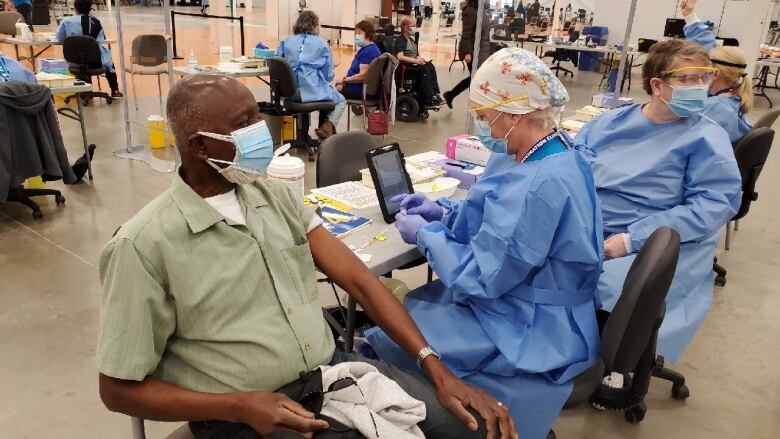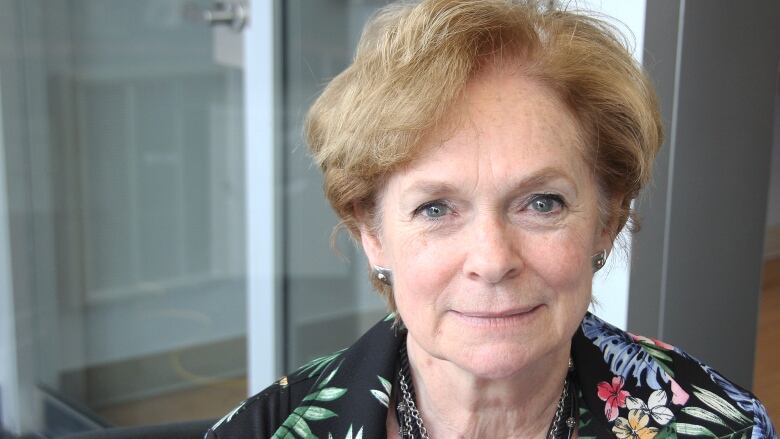Waterloo region hit hard by delta variant, but officials warn it could happen anywhere
'The number one factor remains close contact,' says region's medical officer of health

Waterloo region has for days been the number one hot spot in Ontario for new COVID-19 cases, with health officials pointing to the highly transmissible delta variant as the main driver.
The delta variant, also known as B1617, was first detected in India. The variant came to the province through international travel, but the rapid rise in cases in Waterloo region, believed to be due to the variant "circulating widely" in the cities and townships, has people asking what the community did wrong.
On social media, there are varying opinions. Some have wanted to place blame with the anti-lockdown protests that took place in uptown Waterloo on Sundays for much of May and June.
Others point to a large outbreak among people who are homeless and living in shelters, where there were 100 confirmed cases as of Friday. Others, still, say it was people who returned from a Nunavut mine where there was an outbreak of the delta variant.
Dr. Hsiu-Li Wang, the region's medical officer of health, says there's no one reason delta is in the community.
"We did have a number of cases that were linked to social gatherings in May. And we think that obviously did help increase the spread," Wang said in an interview with CBC K-W's The Morning Edition on Friday.
"Now we know, in retrospect, that it was likely delta that was helping to accelerate that," she said. "Right now, what we're seeing is no longer isolated pockets of cases. It's really cases that are appearing broadly across the region. So there is widespread circulation of delta."
Close contact 'number one factor'
There were two confirmed cases from the BaffinlandMine outbreak, Wang said, with several high-risk contacts. And while the outbreak amongpeople who are homeless is significant, Wang said it's not making up the majority of cases.
"The number one factor remains close contact," Wang said.
"We see that in households, but we also see that in social gatherings and with delta now, if it reaches somebody who is unimmunized and they are surrounded by people that are unimmunized, it's spreading rapidly," she said.
She noted the region didn't realize right away that the delta variant was behind spread because the province's system can't currently screen for delta. Genome sequencing is required to confirm a variant of concern is delta and that can take several weeks, she said.
But reported cases are growing. The region reported76 delta cases Friday, a rise of 31 cases from Thursday. By Sunday, there were 114 confirmed delta cases.
"What's happening here could happen anywhere," Wang said when asked if it was something people in the region did wrong.
"What is making our situation different from the province is we believe now that delta is circulating widely and it is the dominant strain and so whenever we have cases in groups of people who are unimmunized, it can spread quickly from there."

People need to be vaccinated
The key to stop the spread is to get people vaccinated, Wang said.
Regional Chair Karen Redman says she's had concerns that the region wasn't getting its fair share of COVID-19 vaccines.
"I have approached [the province] in the past and said we didn't think that we were getting as much vaccine as we were warranted on our population and on our infection rates," she said during a media briefing Friday.
Wang said the region was not previously receiving the amount of vaccine it should have because some areas were prioritized to receive more, such as Toronto, Peel region and Halton region, as they were deemed hot spot areas.
Wang said at the time, that was "the appropriate thing to do."
"Right now, we are the hottest part of the province and so we need more vaccines," Wang said Friday during a media briefing.
She noted some areas conductedpilot projects earlier in the vaccination rollout, such as neighbouring Wellington-Dufferin-Guelph, which was allowed to give AstraZeneca doses to individuals using family doctors in March. Those areas have been able to stay ahead of the delta variant, Wang said.

'We need more vaccines'
Wang said there were conversations with provincial officials last week over growing concerns about case rates, at which point the region requested help.
"The response has been good. We need more vaccines. They have committed to providing more," she said.
On Thursday, Solicitor General Sylvia Jones said the province would increase the amount of vaccine doses Waterloo region was receiving. As well, two provincial mobile vaccination teams are expected to set up in the region starting next week.
Dr. David Williams, chief medical officer for the province, said in a media briefing Thursday he's been in "constant communication" with Wang to assist in "many different ways."
"We're hoping that, of course, they may be able to bring [case numbers] down fairly assertively in the next week or so, so we are putting all of our energy into helping them do that. They're doing a fantastic job," Williams said.
He noted, while across the province cases are decreasing, officials are seeing delta cases in all health units, including another earlier outbreak in the Porcupine Health Unit in the Timmins area.
"We have to be cautious because while the numbers are down today, if we get these major bursts in four or five areas, we'll be back up over 400 or 500 cases and if they're under vaccinated or unvaccinated, then we'll probably get an inflow back into our hospitals and into our ICUs," Williams said.
Dr. Dirk Huyer, co-ordinator of the provincial outbreak response, said during the same media briefing that there were 10 public health units considered delta hot spots because there have been an increased number of delta cases, with Waterloo being an "example of significance."
"We're watching that on a daily basis to decide if there should be additional allocations or opportunity to speed forward the eligibility for second doses," he said.

Step 2 could be delayed
Redman says there are some mixed messages for people when they hear theOntario governmentsay things are going well andcould move into step two of the reopening plan early.
"Everybody in Waterloo region would also like to move into step two," Redman said Friday. "But there is a reality that we have a delta variant."
She said locally, the "race is getting enough vaccines in arms before we lose control of the spread in Waterloo region."
The region may need to delay a move to step two, Redman said, but that's "a conversation that will unfold over the next several days."
Wang says residents in Waterloo region should be prepared to see other parts of the province move into step two without their community.
"They will likely move ahead and it's possible we may need to be delayed somewhere in order for us to ensure that we're in a good place to move to the next step and not risk having to revert back to a shutdown," Wang said. "We need to take it slow."












_(720p).jpg)


 OFFICIAL HD MUSIC VIDEO.jpg)
.jpg)



























































































